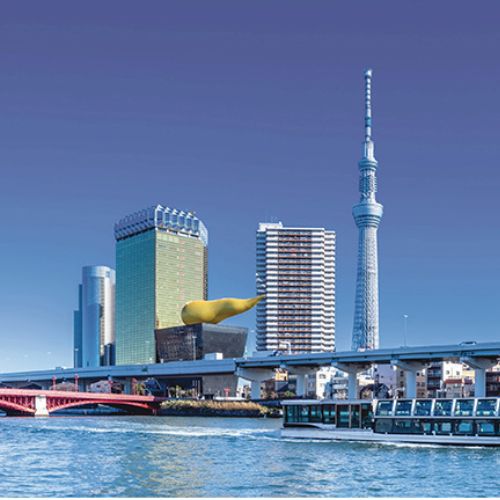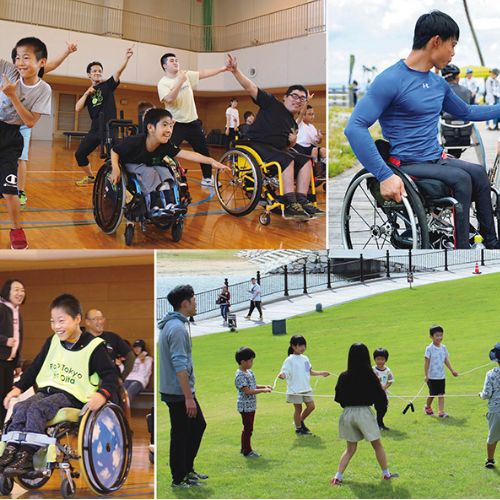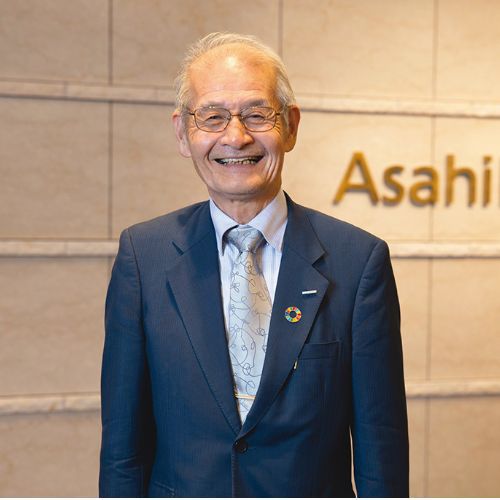Faced with pressing global problems, young people leading the future have begun to take action. Their innovative ideas offer hope for a sustainable world.
The United Nations’ Sustainable Development Goals (SDGs) set 17 goals to achieve by the year 2030 to create a society that will “leave no one behind.” For example, the third goal seeks to realize “good health and well-being.” In places with a shortage of doctors, there are still people who lack the necessary access to health care. Meanwhile, for the eighth goal, which aspires to supply “decent work and economic growth,” providing the right environment to make this happen will be critical. The question then becomes: What should we do so that everyone can find decent work for themselves?
At the G20 Ministerial Meetings held in Ehime and Okayama prefectures, local high school students formulated ideas and presented proposals on working lifestyles and health care. These ideas, full of the inventive thoughts of young people, are the first step toward a sustainable future.
Student Proposals | Matsuyama
Managing Your Own Work Style and Retirement
— A Vision for the Future of Work
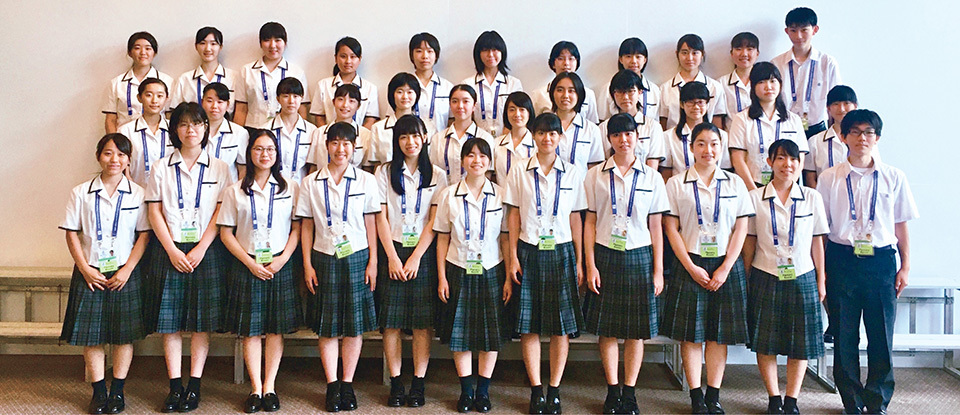
The students who worked out these ideas have many opportunities to interact on a regular basis with diverse cultures through international exchanges.

Presenters representing their school.
From left: Watanabe, Iwai, and Mukai.
Students from the Super Global High School Club at Ehime Prefectural Matsuyamahigashi Senior High School have numerous opportunities to interact with diverse cultures through conducting fieldwork in Asia and Africa, as well as through international exchanges with foreign residents and exchange students in Japan.
At the G20 Labour and Employment Ministers’ Meeting convened in Matsuyama, Ehime Prefecture, 34 members of the club presented their ideas on ideal working lifestyles. WATANABE Mahiro said, “We are the workers of the future, so we searched for the messages that we can convey.” The students proposed two ideas. The first was a “retirement age self-determination system.” IWAI Ayana said, “we thought that if laborers could plan their later stages of life and consult with their employers to decide on their retirement age, they could build a rich life.” The other idea was “work-life integration” to combine work life with private life as a step beyond work-life balance, enabling laborers to enjoy life and find satisfaction in their occupations. MUKAI Ayane advocated “creating various means of implementing these ideas by introducing AI and childcare services.” She added, “We want to build a happy and prosperous future by recognizing the value of work.”
Student Proposals | Okayama
Aspiring to Create a Society Where Women and Children Enjoy Healthy Lives
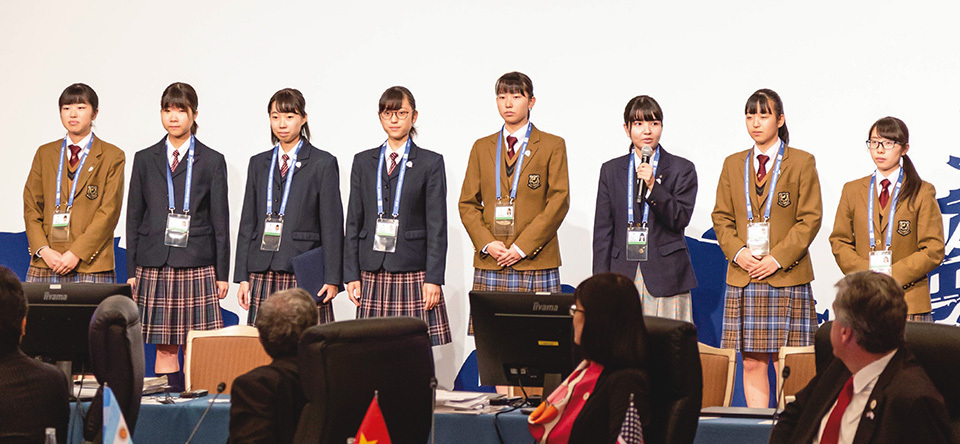
The presentations at the G20 ministerial meeting urged audiences to not only learn about issues, but to connect

Presenters representing their respective schools.
From left: Hirai, Hashimoto, and Itadani.
At the G20 Health Ministers’ Meeting held in Okayama Prefecture, students from three schools gave a joint presentation on “health care and medical issues affecting women and children.” These issues were deeply related to a ministers’ meeting theme: universal health coverage.
The first proposal, which came from students at Okayama Joto High School, was about “the importance of deepening understanding about female menstruation.” HIRAI Seira said that they were surprised to learn that some people know little about menstruation and that some women in poverty use unsanitary cloths instead of buying sanitary products. Hirai, who has struggled with illness, believes that all people should have the right to good health. She said, “In the future, I want to do work related to health care.”
HASHIMOTO Ayaka and other students from Okayama Gakugeikan High School proposed that “there is the need to acknowledge the critical state of health care for women and children in developing countries.” The students have also initiated action to promote health education in Cambodia for children who have grown up there without knowing about how their bodies work. Hashimoto said, “In the future, I want to become a clinical laboratory technician who can contribute to the advancement of medical care in developing countries.”
When presenting a solution to reduce the number of pregnant women who die due to inadequate health care, Okayama Sozan Senior High School cited an initiative to offer perinatal care via telemedicine for Okayama Prefecture's remote islands where there are no obstetrician-gynecologists. One of the students, ITADANI Maika said, “In the half-year spent preparing this proposal, we met people working in medicine and at international institutions. This led us to set a clearer, stronger goal of a society offering comprehensive assistance to people in need around the world, and to support the fostering of attitudes that will make that society possible.”


























